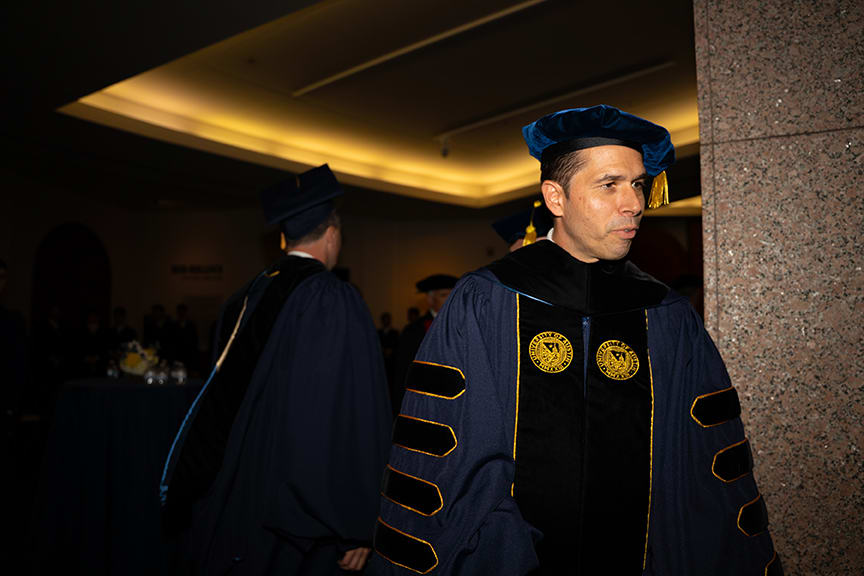How to save capitalism? Let the world's kids migrate anywhere
One member of the global elite has this message for his peers: ignore the youth at your peril.
Among the divisions made clear at this month’s annual gathering of global economic and political leaders in Davos, Switzerland -- between the rich and poor, the educated and not -- another one is emerging: the young versus the old.
The youngest generations find themselves hit hardest by global inequality. Worldwide youth unemployment is on the rise and projected to hit 13.1 percent, the International Labor Organization found last year. The crisis has reached dramatic proportions especially in North Africa, the Middle East and South Asia, where young people make up just 17 percent of the labor force but more than 40 percent of the unemployed.
Meanwhile, developed economies are struggling to deal with a workforce that is rapidly aging into their social safety nets -- and not being replaced with enough younger workers to support those benefits. Germany has seen a shortage of skilled workers in manufacturing and engineering fields. Japan’s population is set to contract by 25 percent in less than 50 years. Even the United States, whose welfare state is minimal by comparison, faces challenges as the baby boomer generation ages into retirement and strains the country’s healthcare and social security systems.
This quandary has a simple solution, argues Felix Marquardt: Give the world’s youth greater freedom of movement.
Marquardt, a hip-hop producer turned security consultant turned founder of the Youthonomics think tank, has previously advocated for paying young Europeans to move elsewhere. Now the president of cybersecurity consultancy Cylance International, his argument for this new system is simple: Moving potential workers from developing countries where they can’t find jobs to developed countries that can’t find workers would help both parties.
Creating what is effectively a free market in youth labor would spur countries and companies to compete for younger workers, creating a better environment for everyone, Marquardt says. It’s also a way to curtail the rise of demagogues in future generations, he adds, since people who have traveled are more likely to favor open borders and less likely to subscribe to protectionism and anti-immigrant impulses.
The specific mechanism Marquardt argues for is a two-year global work visa.
Many economic migrants, currently leaving their insecure nations to work in Europe or the U.S., are essentially already making this choice. Marquardt’s idea would formalize it and remove most of the current obstacles.
“If we allow young people to move around, which today’s technology allows more than it ever has, we can turn the world into a beauty contest of countries, companies, cities, vying to attract young people,” he told CBS News in Davos.
“When you travel, you grow, you learn, you learn many of the skills that you imperatively need to become an adventurer, an entrepreneur.”
In addition to solving labor shortages, he says the program would go a long way to amplifying the voices of youth, who are not well represented in international decision-making bodies as well as in national and local elections.
On the surface, this seems like a neat idea, as immigrants overwhelmingly benefit the countries they enter. Immigration boosts a country’s economic growth. In the U.S., immigrants accounted for nearly half of workforce growth from 2002 to 2012, and more than 70 percent of Europe’s workforce growth over the same time period, according to the OECD. The same brief also found that immigrants contribute more in taxes and social contributions than they receive in benefits and that they contribute to overall technological progress. Immigrants are more likely to start businesses than native-born Americans, found an analysis by the Small Business Administration; and immigrants were behind 51 percent of America’s privately owned billion-dollar startups.
Many studies have also found that immigrants provide a slight boost to wages of native-born workers, though the data is not as uniform on this point. Other studies suggest that competition from immigrants lowers wages for high-school dropouts and the least educated workers.
Still, it’s not clear how countries will be made to accept these economic migrants, especially with nativist sentiments surging in much of Europe, Australia, the U.S. and even Canada. And even if developed countries were to go along with a global visa program that aims to create a mass movement of young people of color, it’s not hard to see what could go wrong with this scenario. Widespread use of work permits risks creating a permanent global underclass, akin to the millions of migrants from Southeast Asiacurrently working in Persian Gulf nations, who are susceptible to abuses and cut off from politically participating in their home countries. And even complete freedom of movement can’t create more jobs for workers, who will outnumber the available jobs by 400 million, according to The Guardian.
Still, if a program along these lines takes off, it could potentially act as a foil to fundamentalism. Marquardt hopes that giving young people new and empowering experiences will spur more entrepreneurs -- something that will be necessary if the job shortage is as dire as economists predict. Whether it does or not, bringing young people together would help develop the political consciousness of a new generation that finds itself increasingly grappling with the poor political choices of its predecessors. And that is something to encourage.
Reporting for CBS News from Davos, Switzerland: Lulu Chiang, Lauren Hoenemeyer and Gilad Thaler.



